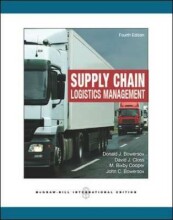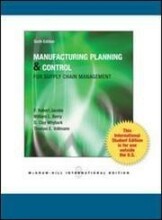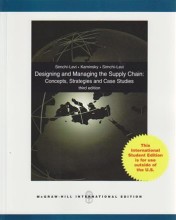Purchasing and business strategy - Global sourcing
6 important questions on Purchasing and business strategy - Global sourcing
About which two type of activities consist global sourcing?
2. co- ordination of common items, materials and suppliers across worldwide purchasing , engineering and operating locations.
What are advantages and disadvantages of global sourcing?
- lower unit costs;
- benchmarking current suppliers;
- developing new suppliers to stimulate competition and getting access to new markets;
Disadvantages:
- more complicated distribution and logistics;
- increased handling costs;
- problems that may occur due to dealing with different cultures;
- contractual problems;
- higher carbon footprint;
- higher uncertainty regarding to on - time delivery and quality.
What are the different levels of sophistication to global sourcing?
- engage in domestic purchasing only;
- engage in international purchasing only as needed;
- international purchasing as part of sourcing strategy;
- integration and co-ordination of global sourcing strategies across worldwide locations;
- integration and co-ordination of global sourcing strategies with other functional groups.
See article 2 "Achieving Excellence in global sourcing" for more information on this.
- Higher grades + faster learning
- Never study anything twice
- 100% sure, 100% understanding
Decribe the differences between offshoring, near - shoring, back - shoring and reshoring.
Near - shoring: relocation of production activities to a foreign country in the company's regions;
Back - shoring: re-concentration of production from foreign sources to company's domestic production site;
Reshoring: moving manufacturing back to country of parent company
What are critical success factors for global sourcing?
- Executive commitment to global sourcing;
- Rigorous and systematic processes (learning from past experiences);
- Availability of needed (critical) resources;
- Integration through IT;
- Supportive organizational design ("governance");
- Structured approaches to communication;
- Ability to measure performance improvements (savings)
See article 2 "Achieving Excellence in global sourcing" for more information on this.
What are barriers to global sourcing?
- Lack of understanding of international purchasing procedures --> poor knowledge about potential supply sources + lack of familiarity with required documentation;
- Lack of knowledge about foreign business practices, languages and cultures (for purchasing this may affect product/ component specifications);
- Higher risks (e.g. due to more complex logistics);
- Lack of senior management support;
- Resistance to change.
The question on the page originate from the summary of the following study material:
- A unique study and practice tool
- Never study anything twice again
- Get the grades you hope for
- 100% sure, 100% understanding
































